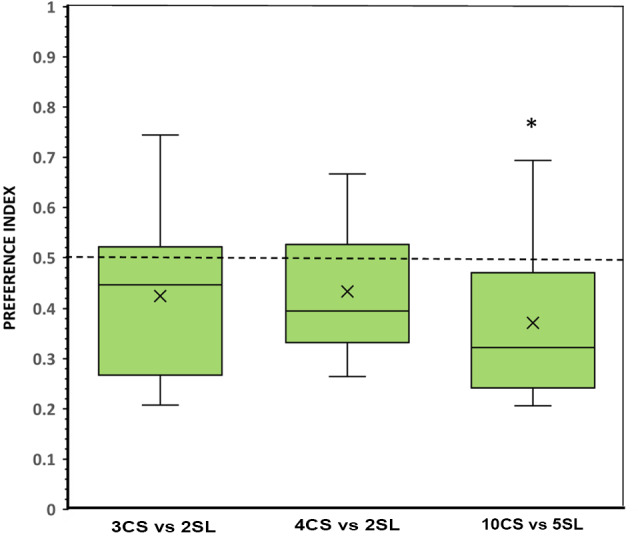Figure 5.

Choice of angelfish in the different numerical contrasts when the convex hull and contour length was equated between the contrasting sets, but the size and density of the items were different. The proportion of time (preference index) spent by test fish in the preference zone close to the food sets. Box plots show median (horizontal line in the boxes), 25% and 75% quartiles (boxes), and the highest and lowest values within the range of 1.5 times the respective quartiles (whiskers). Blades represent the mean proportion value. Values above 0.5 indicate a preference for the numerically larger sets with clustered and small items, whereas values below 0.5 indicate a preference for the numerically smaller sets, with scattered and large items. A significant departure from the null hypothesis of no preference is indicated by asterisks, *p < 0.05. SL, scattered and large food items; CS, clustered and small food items.
